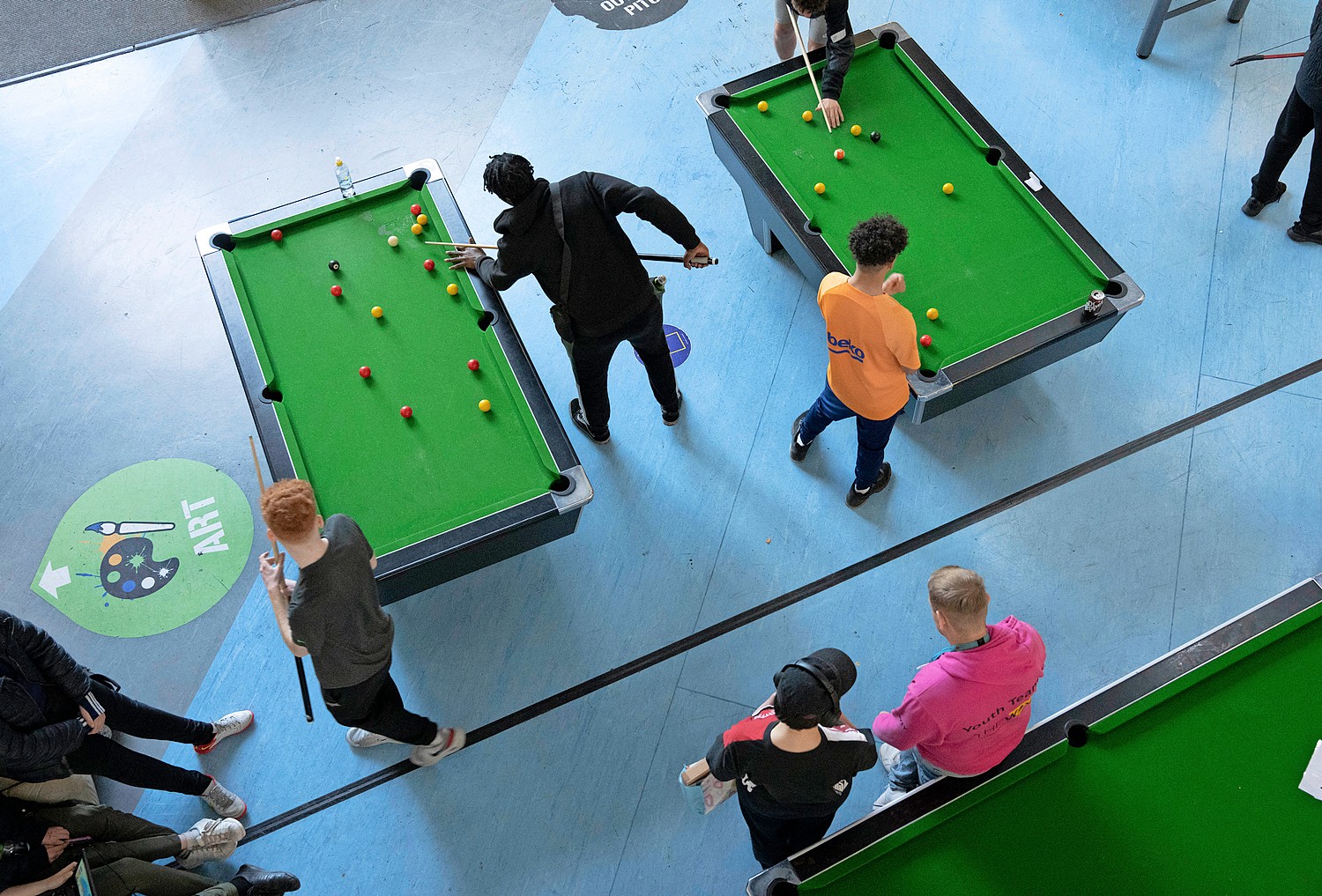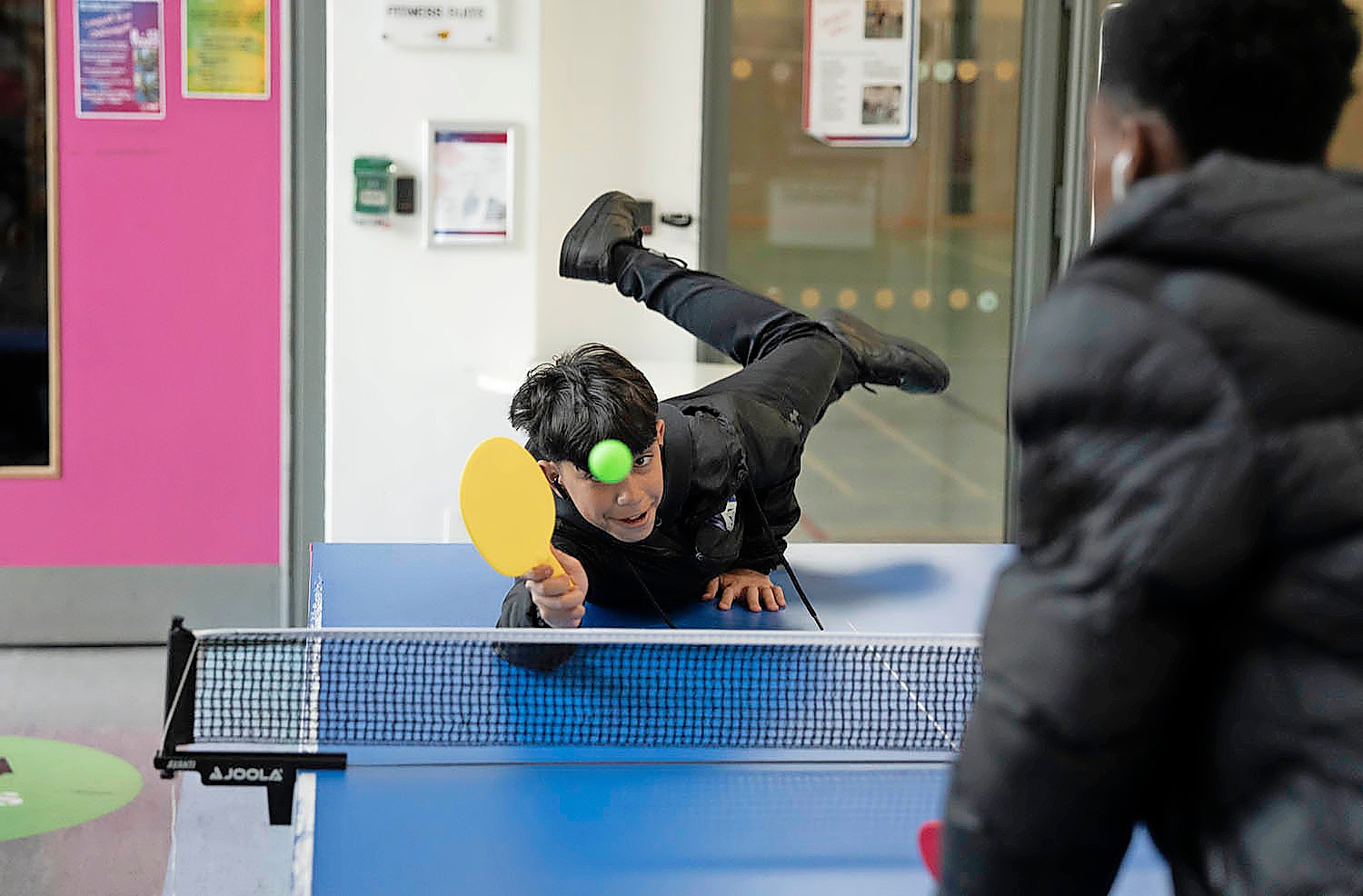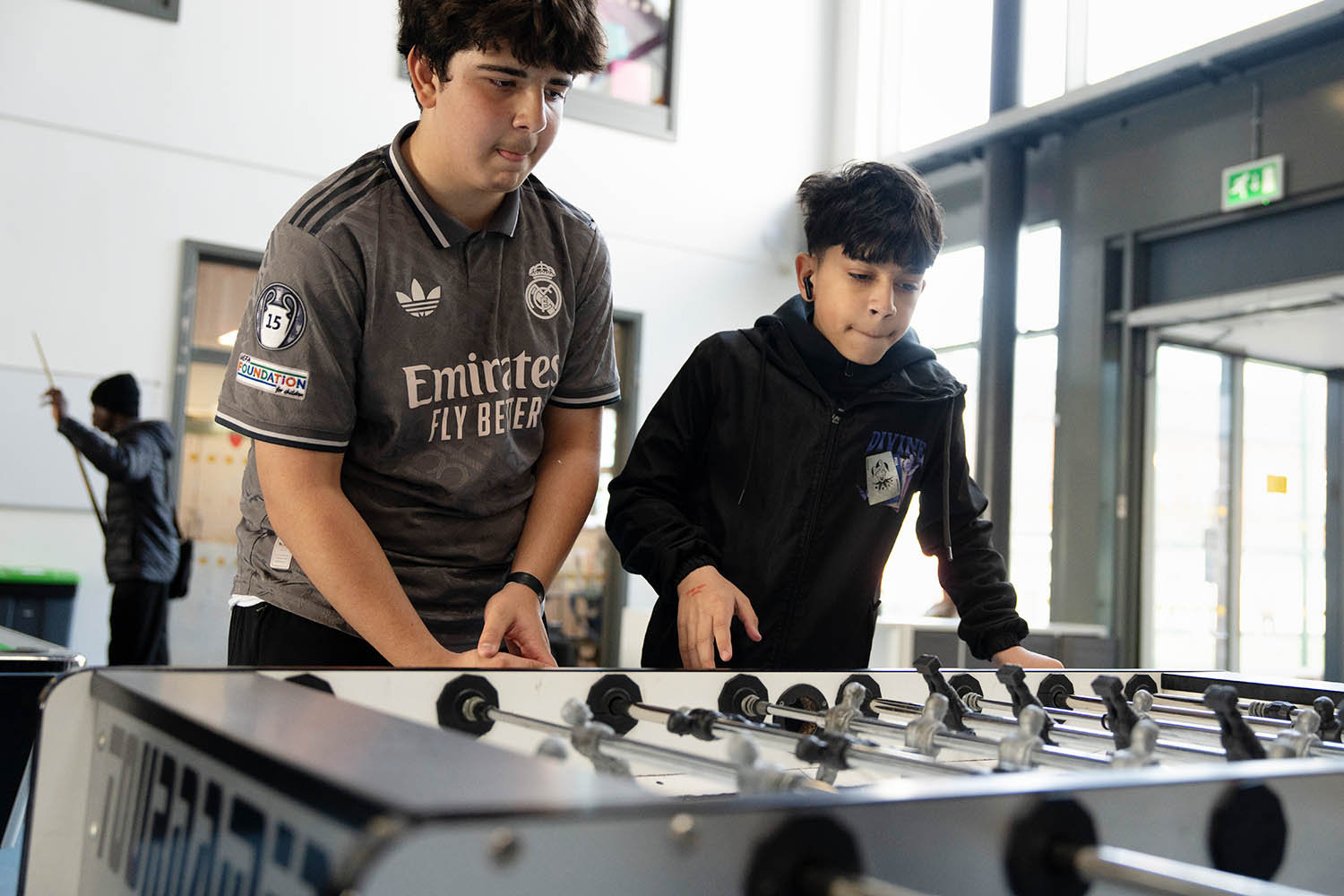Photography Andrew Fox
Inside a boxing ring 14 teenage boys and two youth workers sit side by side. After placing their phones in front of them to ensure nobody is covertly recording, the boys say their names and ages. Welcome to “male empowerment”: a weekly session at a Wolverhampton youth centre run by the charity OnSide.
Each week the discussion focuses on one topic, and this week the theme is expectations. Jead Clarke, a 26-year-old senior youth worker who runs the sessions, asks the boys what comes to mind when they think of this word. What, he asks them, do they think society’s expectations are of men and boys?
“Treating women right,” one boy says. Being “respectful to your parents”, says another. The “expectation not to be weak”, “to get good grades” , “to be strong” and “to be the provider”, say others.

Society is worried about young boys: “lost boys”, a report by the Centre for Social Justice called them earlier this year. Misogynistic influencers are just a swipe away on their phone screens, loneliness and disillusionment are rife, and surveys increasingly show them shifting ideologically to the right.
Clarke and his fellow youth workers at OnSide think they may have an answer. The Wolverhampton youth centre, The Way, is a spotless, spacious modern building. Capital FM blasts from the speakers. There is a music studio, football pitch, basketball court, dance studio, climbing wall, gym, sensory room, podcast studio and art room.
These spaces, the team hopes, are a place where boys can talk openly and honestly about their inner thoughts and be vulnerable with one another.
About 50,000 boys and girls – aged from eight to 18, or up to 25 if they have additional needs – attend OnSide’s youth “zones” every year. Boys make up about 55%. They have 15 centres across England but are due to open seven new sites in Thurrock, Grimsby, Bristol, Preston, Crewe, Barnsley and Salford in the next two years, and at least four other initiatives similar to the male empowerment session in Wolverhampton are running at other locations.
Members discuss everything from relationships and friendships to sex, bullying and drugs
Members discuss everything from relationships and friendships to sex, bullying and drugs
OnSide’s centres are an outlier in a sector ravaged by cuts. More than 1,200 council-run youth centres closed between 2010 and 2023, according to estimates by Unison. The charity is predominantly funded by the private sector, with Burberry, Richer Sounds, Barratt and USC among their investors, as well as by money from local authorities and government capital investment programmes such as the Youth Investment Fund.
The idea of male empowerment, the team says, is helping boys to discuss their emotions – empowering them to break away from stereotypes of masculinity. They have discussed everything from relationships and friendships to culture, sex, bullying and drugs.
Newsletters
Choose the newsletters you want to receive
View more
For information about how The Observer protects your data, read our Privacy Policy
In the Wednesday evening session, surrounded by boxing gloves and headguards, Clarke asks the boys whether it is right to say men should not cry. He goes on to discuss the struggles he has been through personally. “What advice would you give me?” he asks. One of the boys suggests therapy. Another recommends talking to someone to get different perspectives on a situation.
He talks to them about feelings overflowing if you run from them – a water bottle filling up until nothing more can fit inside. “Sometimes we think we are superhuman,” Clarke says. “We go to work putting on a brave face. Everyone has a limit. Speaking is such a beneficial thing.”
Some young people come to the centre because a friend recommended it to them, others because they are struggling at school and their teacher referred them, or social services. Entry to the Wolverhampton centre is 50p and an annual membership is £5. More than 2,600 young people come to The Way every year, with at least 250 week in, week out – a number that is rising and has more than doubled since 2021.
About 65% of young people at the centre are from the 30% most deprived areas of the city, while 60% are from black and minority ethnic backgrounds, 8% have experience of being in care and 20% have additional needs. There are family sessions, too, where parents can ask for advice about their children.

Clarke, who is from Wolverhampton, says the boys were not keen to open up when they first started the discussion sessions in November. But he managed to win them over by promising to open up the football pitch if they attended.
Clarke encounters young men who have clearly been consuming misogynistic material online. But he also traces a lot of their sexist comments back to attitudes they have picked up at home. Their perception of women, the roles women should play in the household or in relationships, and how they think women should be spoken to, he says, differs wildly depending on their upbringing. “If they have seen the dynamic of ‘I can’t talk to my dad like that, but I can talk to my mum like that’ or ‘My mum can’t say that to my dad, but my dad can do whatever to my mum’, they don’t even realise why it’s wrong. And you can see that they just haven’t been fed with the correct knowledge.” Rebecca Bunger, the centre’s head of youth work, has been on the receiving end of misogyny. She has seen boys not wanting to play sports with girls and being rude to female staff, including telling them to get back in the kitchen.
The 30-year-old says Andrew Tate, the misogynist influencer, comes up in conversations, with boys latching on to his views on traditional gender roles, while the girls resolutely reject these ideas. The Way team does not berate the boys for bringing up Tate and instead strives to understand why they find his views appealing. They should not be made to feel “ashamed” as “the shame will fuel” their interest in him, she adds.
Bunger believes economic problems are breeding feelings of hopelessness among young people, but centres such as these can restore faith. “The danger of online misogyny is that it is so constant for our young men, and they don’t escape it,” she says. “I absolutely think that youth work is that safe third space that is the answer to a lot – not just misogyny, but serious youth violence.”
